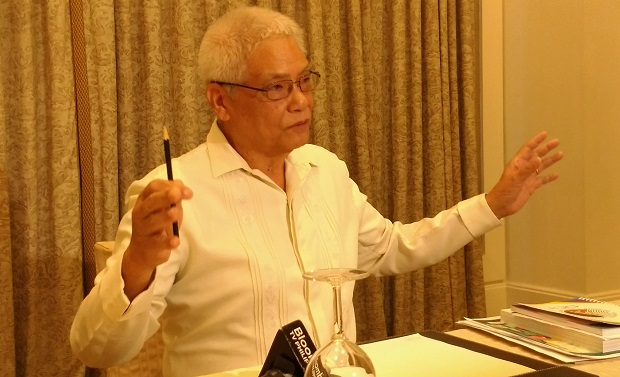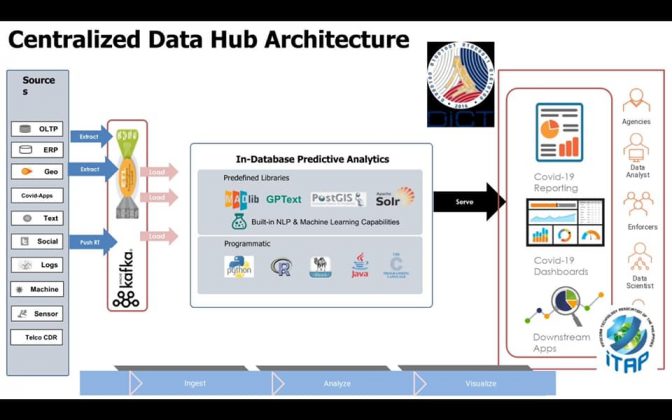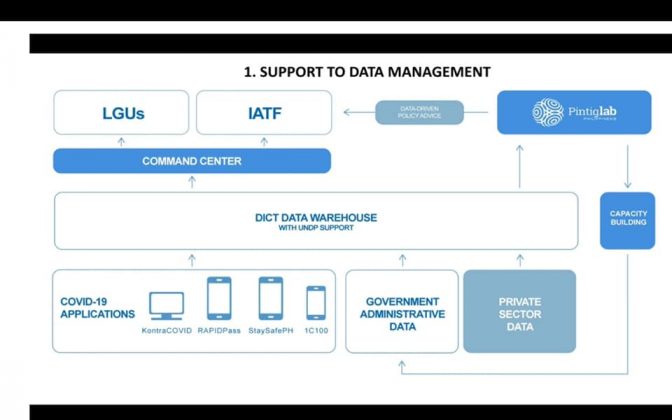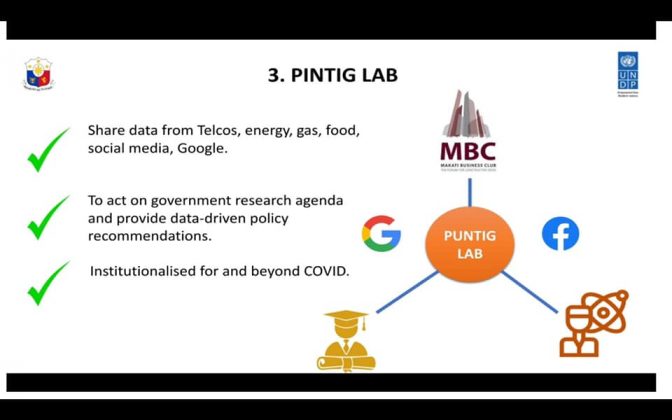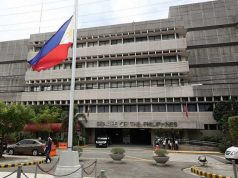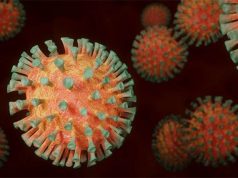The former resigned undersecretary of the Department of Information and Communication Technology spoke up on his perceived gaps in the decision-making system within the government’s task force assigned to handle the COVID-19 pandemic.
In a statement posted on Facebook on August 16 he titled “For the love of country”, Eliseo Rio Jr., who also previously served as the acting DICT secretary early this year, disclosed that “gatekeepers” within the Inter-Agency Task Force on Emerging Infectious Diseases (IATF-EID) prevented his proposal of an open system. This system is eyed to help them contain the virus which causes COVID-19 in the country.
FOR LOVE OF COUNTRYThis involves an exchange of text messages between myself and a member of the IATF on May 21, 2020,…
Posted by Eliseo Rio Jr on Sunday, August 16, 2020
As proof of this, Rio also shared screenshots of text message exchange with a member of the IATF whose name he blurred in the photos.
The “gatekeepers” Rio was referring to in his statement is the IATF sub-Technical Working Group which was headed by DICT Assistant Secretary for digital Philippines Manny Caintic.
“This involves an exchange of text messages between myself and a member of the IATF on May 21, 2020, the day before the surprise acceptance of the President of my resignation from DICT filed four months before. This exchange of messages showed my frustration on how decisions are made in IATF,” Rio wrote.
Rio explained that this proposal was an “open system” for IATF’s effective data management and integration of COVID-19 cases in the country. This was already approved by DICT Secretary Gringo Honasan and National Task Force against COVID-19 Chief Implementer Carlito Galvez Jr.
However, despite the approval, this plan was sent back by Caintic’s team for “further study” prior to the passage of IATF Resolution 36 last May, which previously eased travel restrictions and partially opened businesses in some parts of the country.
“We had a ridiculous situation where a DICT ASec sent back for further study, my proposal that was already favorably endorsed by his own DICT Secretary to the IATF. And this rejection was done two weeks after the proposal was submitted, with the passage of IATF Resolution # 36,” Rio said.
“The proposal never got past the gatekeeper. It was Caintic’s idea that prevailed and which, as we know now, did not work in bringing down or addressing the pandemic curve,” he added.
In the resolution cited, it was stated that the government’s information and communication technology system for COVID-19 presented by the DICT is already “complete and closed.”
“Any new system that will be introduced hereafter shall have to comply with the prescribed data sharing, data format and data privacy guidelines,” the resolution read.
Why Rio is speaking up now
Rio later explained that his group the COVID-19 Central Advocacy Group, recently submitted another letter to help the IATF solve the worsening health crisis through scientific means.
“The reason I am bringing this up is that even now, the gatekeepers in the IATF are still preventing the contributions of talented groups and individuals and meant to address our worsening pandemic,” the former DICT official said.
“Our proposed solution has been effectively used and implemented in other countries. Without a cure or vaccine for Covid-19, we offer a scientific way of coordinating testing, tracing and treating in isolation COVID-infected people faster than the virus can spread. This is the only way to balance public health with economic health,” he also said.
As of August 16, the Department of Health reported 3,420 new confirmed cases which brought the total to an alarming 161,253.
There are also 40,397 new recoveries, the highest in a single day, which summed up to 112,586.
The DOH earlier said that the “mass recovery adjustment” is part of its Oplan Recovery initiative.
A centralized data hub
What Rio suggested was a “centralized data warehouse” for the IATF where “all granular and real-time data coming from different silos like the frontline agencies, private sectors and vetted Covid-19 apps, including contact tracing,” would be integrated, operationalized and available to all authorized IT and medical experts, and economic and data analysts.
“It is an open system wherein as many vetted individuals and organizations can participate, that would put meaning to our slogan ‘We heal as one’ and highlight our Bayanihan Spirit,” he said.
The former DICT head had hoped that THE IATF would approve this before the latter decided on transition the country from ECQ to a more relaxed quarantine phase.
Without a centralized data hub, Rio earlier forecast that the country could “never flatten” the curve of virus transmissions.
The DOH was the agency previously hit by data analysts and other local researchers for its gaps in data management of cases.
Despite its new platform called COVIDKaya, local scientists and data analysts still criticized its shifted data interpretation and delayed reporting of new infections.

